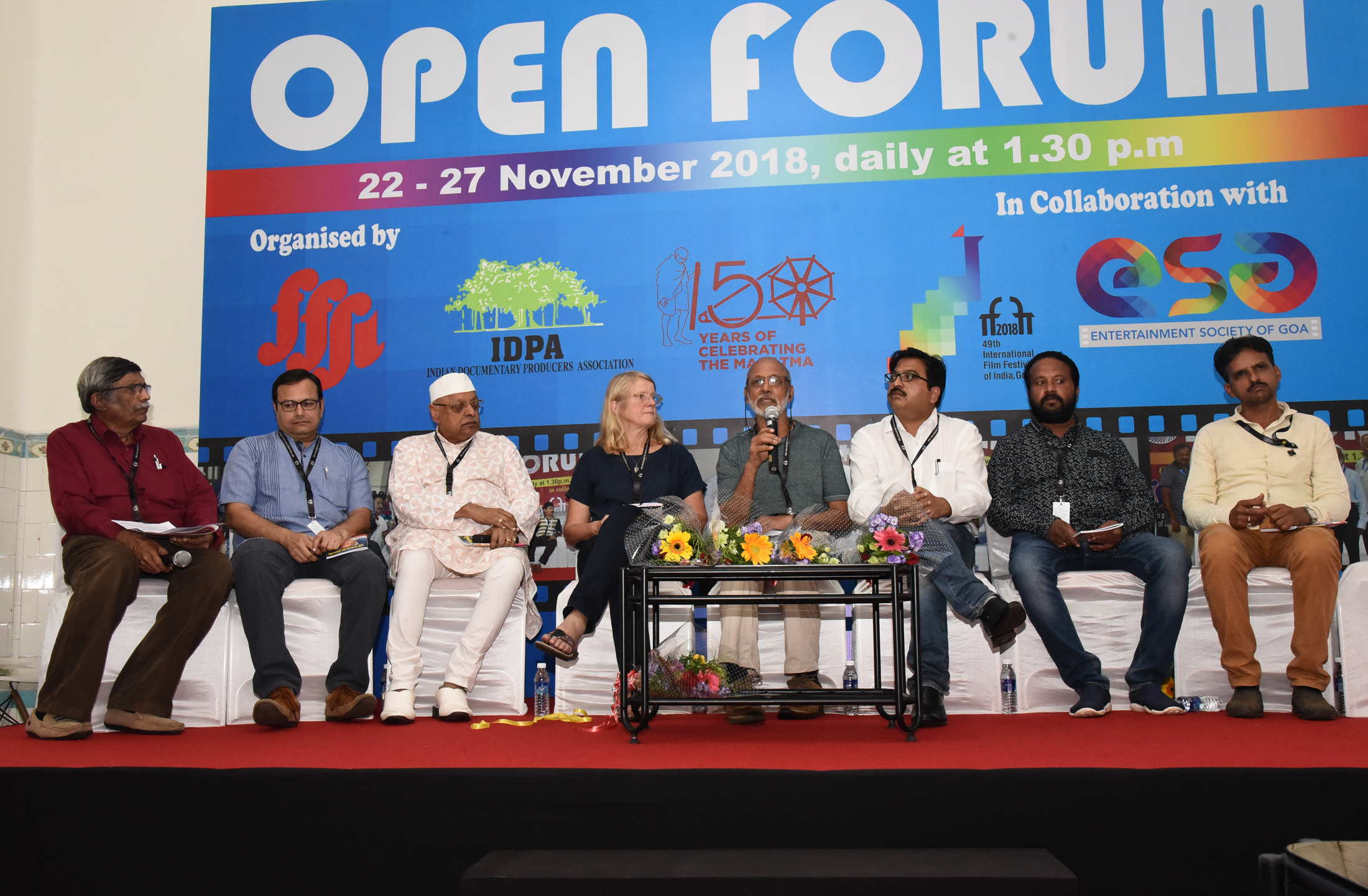Ministry of Information & Broadcasting
Open Forum Discusses the Digital Dilemma of Archiving Process
Posted On:
23 NOV 2018 7:40PM by PIB Mumbai
India’s diverse cinema has caught the attention and imagination of film fraternity across the world. Right from the first silent film Raja Harishchandra in 1913by Dadasaheb Phalke to the present, the country has presented a bouquet of movies that spans regions, languages and cultures. But what happens once these films have lasted their box office life? Preservation in this context is crucial. Day 2 at the Open Forum of International Film Festival of India (IFFI), brought to fore ‘The urgent need for digitization, restoration, and preservation of cinema for posterity’.

Opening the discussion, renowned filmmaker and Technical Committee Chairman, IFFI 2018, Shri A. K. Bir noted that technology has greatly helped in restoring the films that suffered from aging, chemical changes and other defects over the long years. Digitization has enabled films to be preserved in the same depth and colour in which it was initially made. However restoration suffered the danger of a creative dilution. He warned, “sometimes the person who is connected to the restoration process may be influenced by the technology to bring a new look to the original work that was created years ago.” Here the amount of enhancement depends on the ‘ethical sense’ of the restorer. He maintained that it has to be exactly the way it was created and the depth and tonality of the same have to be retained. While restoring a film, one has to give respect to the person who put so much effort to create certain sensibilities of a particular idea, he said.
Shedding light on the restoration of Swedish films, Ms. Jannike Ahliund, Director, Ingmar Berman Centre, Sweden said that the restoration of the Swedish film archive began in 2010 with substantial aid from the Government. The process started with the celebrated Swedish filmmaker Ingmar Berman in light of the centenary year celebrations. All his movies have been restored and have travelled to retrospectives at film festivals across the world. She also emphasized that it is not essentially hierarchical quality order that always determines the films to be selected for restoration. Finding out who owns the rights to these old films often posed a task, she said. Since many filmmakers have passed on, the institute undergoes an exhaustive research process to trace the relatives who may possess the rights to the work, she added.
Contradicting Ms. Jannike’s views, Shri. Prakash Magdum, Director, National Film Archive of India said that films have to be selectively digitized considering the limitations in resources and time. “Whether to preserve in digital form or go back to celluloid form presents a ‘digital dilemma’ before the archiving world. But there are no universal answers or solutions for archiving”, he told. From an archival process, he noted, celluloid is the best long term process available. “If you keep it in a controlled atmosphere, it can last more than 150 years.” Shri Prakash Magdum further added that publicity materials which are windows to a film needs to be digitized along with the film.
Shri Subhash Chheda, Head-Archival Acquisition, Mumbai took the audience on his personal journey of restoring films and collating a huge database of old film magazines and other memorabilia. He also pointed out that since film is the combination of image and sound, restoration of sound needs to be taken care of along with the image. Accessibility is another aspect in film digitalisation and restoration process that must not be overlooked, he said.
Shri. Kiran V. Shantaram, President, Federation of Film Societies of India said that the federation plays an important role in bringing the old cinema to the younger generation. Film Directors Shri. R Dhanraj and Shri Karthik. J. Shinde were also present. A book on eminent Telugu film maker late K.B. Tilak written by Shri. N. Gopalakrishna was released by Shri Kiran V. Shantaram at the event. Shri N. Sasidhara, Vice President, Federation of Film Societies of India moderated the open forum discussion.
ED/BSN
****
(Release ID: 1553691)
Visitor Counter : 553